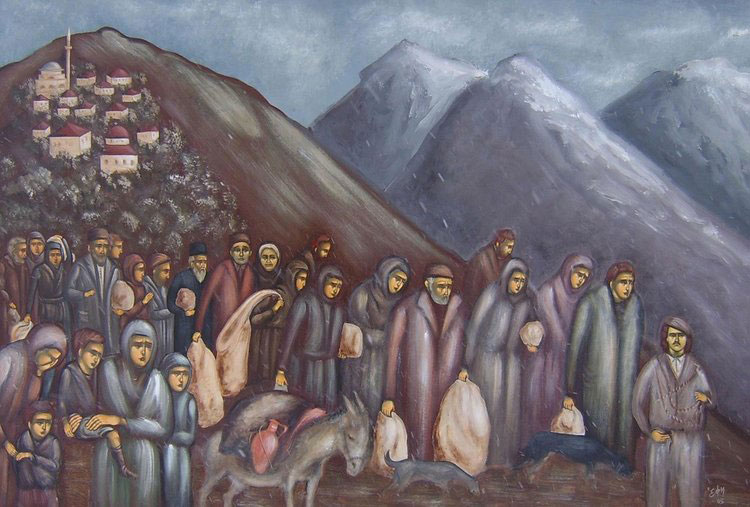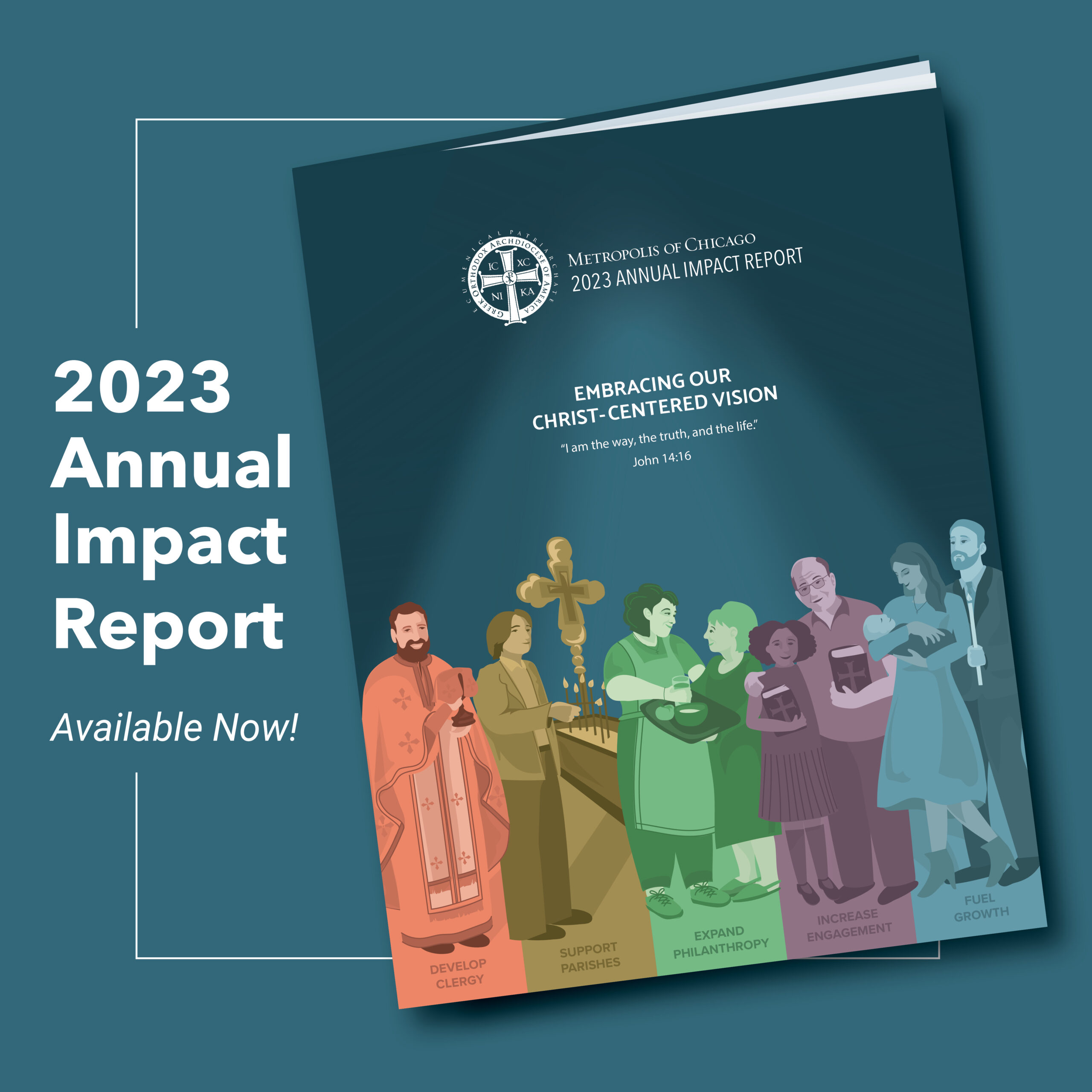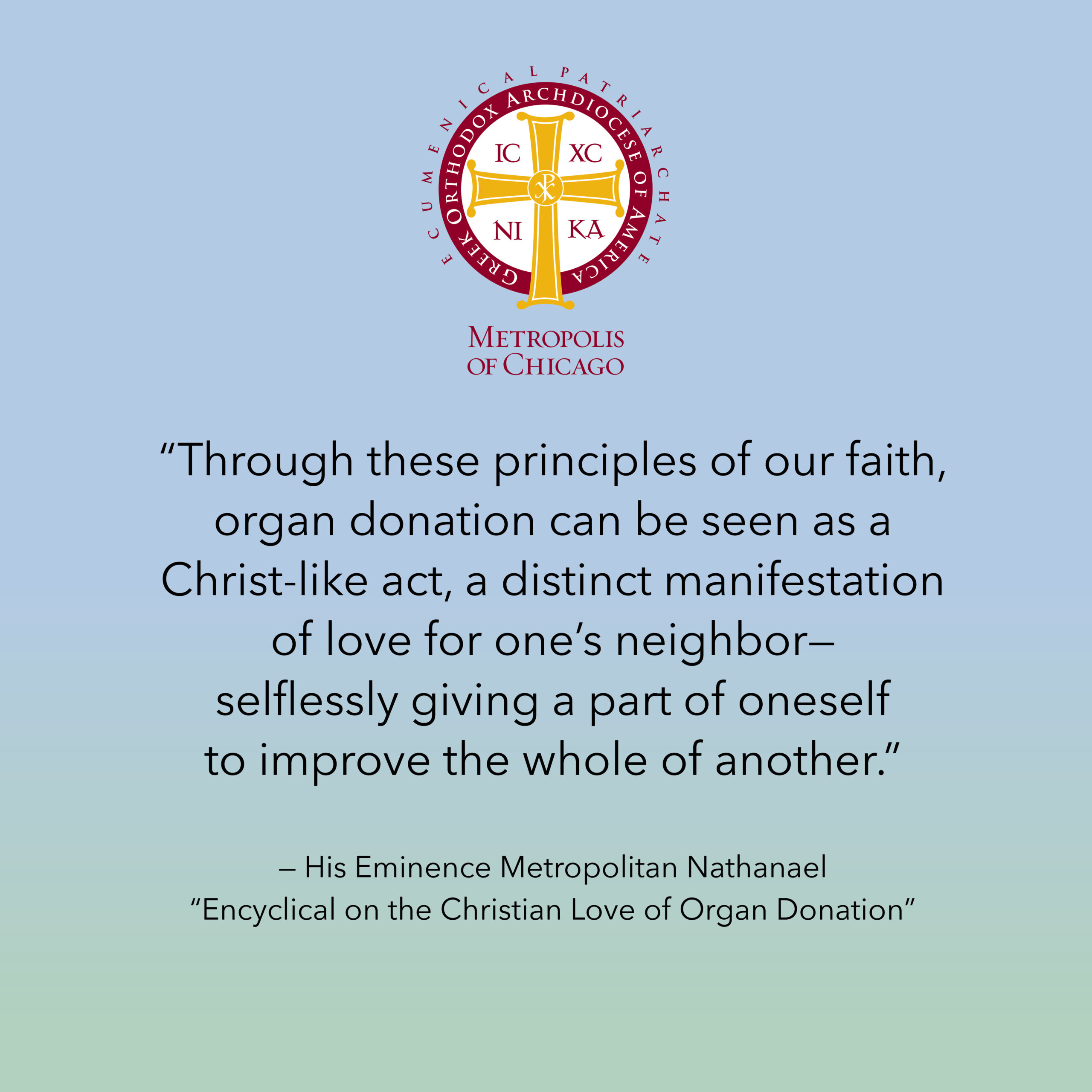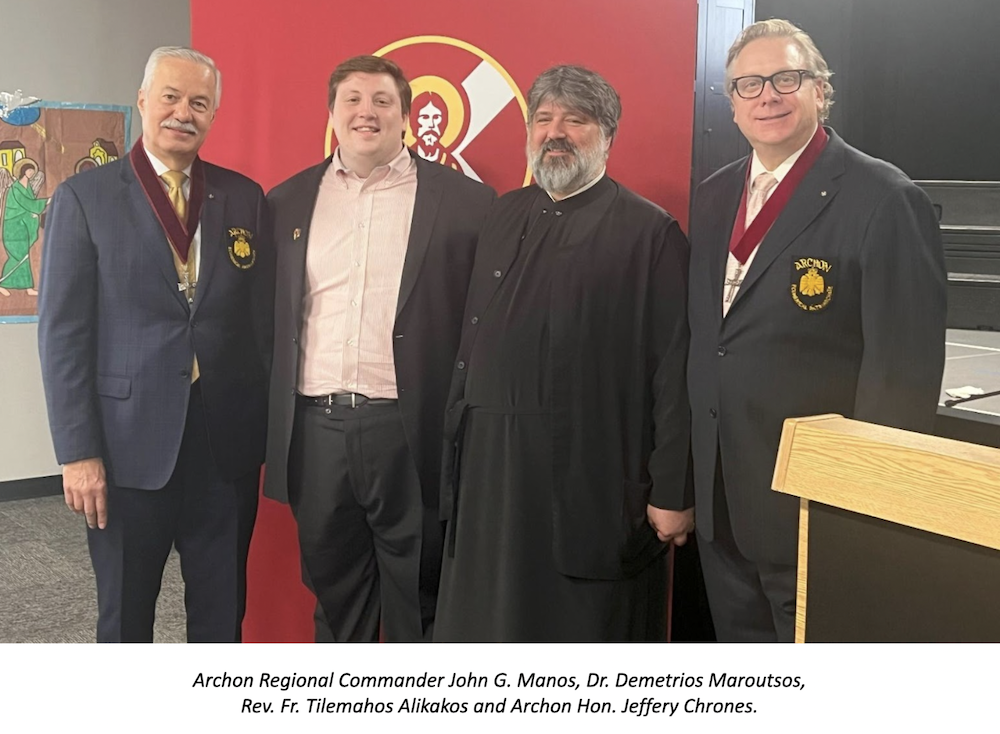Brief Remarks – 100th Commemoration of the Great Catastrophe
Sunday, April 7, 2019 1:00-4:00pm
Illinois Holocaust Museum – 9603 Woods Dr. Skokie, IL 60077
His Eminence Metropolitan NATHANAEL of Chicago
Beloved Sisters and Brothers,
Let me begin by expressing my heartfelt gratitude to the Illinois Holocaust Museum for generously hosting this historic event, and to the Asia Minor and Pontios Hellenic Research Center, the Pontian Greek Society of Chicago, the esteemed scholars participating in the symposium, and the many Community Partners who helped to make today’s commemoration and symposium possible.
There are occasions when we gather in joyful celebration; when we, as the Psalmist states, “sing to the Lord, sing praises to Him; tell of all His marvelous works” (Ps 105:2)
There are other occasions when we gather in mourning; when we lament, pouring out our troubles and expressing our sadness before Him. (cf. Ps 142:2)
Today, however, is one of the rare occasions when there are no words to express what is in our hearts; when we are most authentic when we simply stand, in silence, before a mystery that is beyond our comprehension…beyond our capacity to process…beyond words.
Really, to offer any remarks today—to stand before the mysterium tremendum that is “the Great Catastrophe” and to use words—is simultaneously OFFENSIVE and NECESSARY. No matter how careful we are, no matter how much reverence and respect we show toward those who suffered violence at the hands of the Ottoman Turks between 1913 and 1923, our words fail to capture the depth and horror of this event.
Within Orthodox theology, based on the teachings of the Church Fathers, we employ what scholars call “apophatic language,” or “negative theology,” in order to refer to the mystery of God. Thus, for example, St. Cyril of Jerusalem says, “For we explain not what God is but candidly confess that we have not exact knowledge concerning Him. For in what concerns God, to confess our ignorance is the best knowledge.”
Offering remarks in commemoration of the Great Catastrophe—the genocide committed against the Greeks of Pontos, Asia Minor, and the Black Sea region—presents a challenge like the challenge St. Cyril identified in speaking about God. The Great Catastrophe cannot be “explained”; it cannot be “contained” in language; it cannot be “understood”; it is a mystery before which either silence or “confessing our ignorance” signifies the best claim to knowledge. And yet, we absolutely MUST speak about it. We absolutely MUST study the historical sources, the personal accounts, and the concrete facts with scholarly integrity, in order to never forget and never allow falsehoods to further desecrate the dignity of those who suffered. In other words we are called to be silent and we are called to speak the truth today, 100 years after the Catastrophe was perpetrated.
As the presiding hierarch and spiritual leader of the Greek Orthodox Metropolis of Chicago, I have a dual responsibility in relation to the Great Catastrophe. On the one hand, as I noted above, I have a duty to encourage scholarship that is conducted with integrity and shared with the public, so that the truth of this horrific chapter in human history is documented, remembered, and shared; a duty to remind those within my care of the demonic depths of violence and hatred human beings are capable of reaching.
Yet on the other hand, without ever minimizing the raw and incomprehensible tragedy that the Greeks suffered, it is also my duty to help us heal spiritually and to experience the deepest and most authentic liberation that comes only from God, and only through mercy, forgiveness, and love. Our Lord’s words are clear in their meaning and absolute in their scope: “You have heard that it was said, ‘You shall love your neighbor and hate your enemy.’ But I say to you, Love your enemies and pray for those who persecute you, so that you may be children of your Father in heaven” (Matt 5:43-45).
Beloved, while the Great Catastrophe is a horror beyond words, a sinful tragedy beyond understanding, and an impenetrable mystery, an even greater mystery and capacity beyond words is the human heart’s ability to love all people. Finding ourselves in the midst of Great and Holy Lent, it is fitting for us to fix our eyes on the example of our Lord and to eschew hatred, bigotry and racism of any kind. I close with the words of one of our newest Orthodox saints, St. Amphilochios of Patmos, who said: “I was born to love people. It doesn’t concern me if he is a Turk, black, or white. I see in the face of each person the image of God. And for this image of God I am willing to sacrifice everything.”




